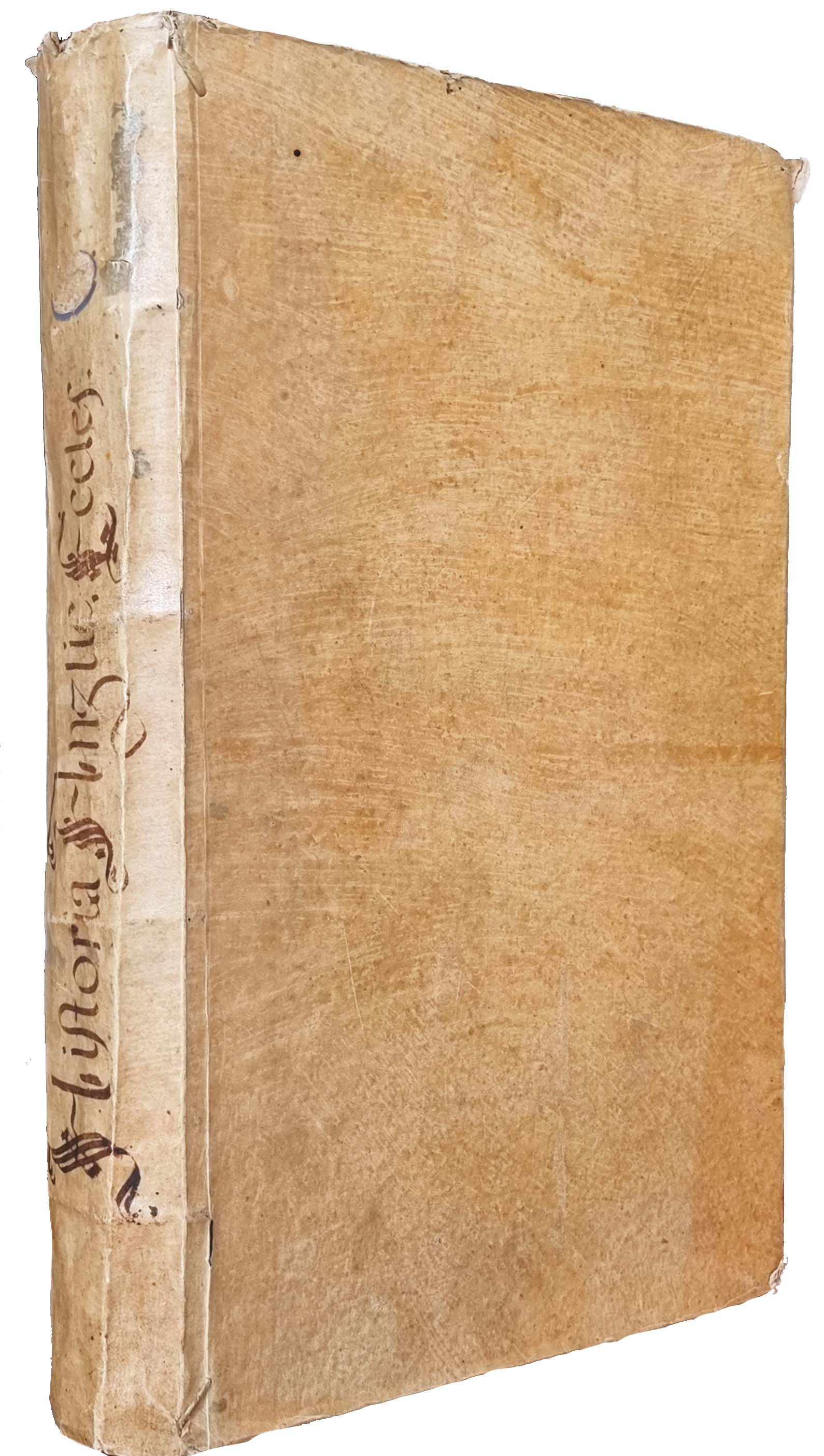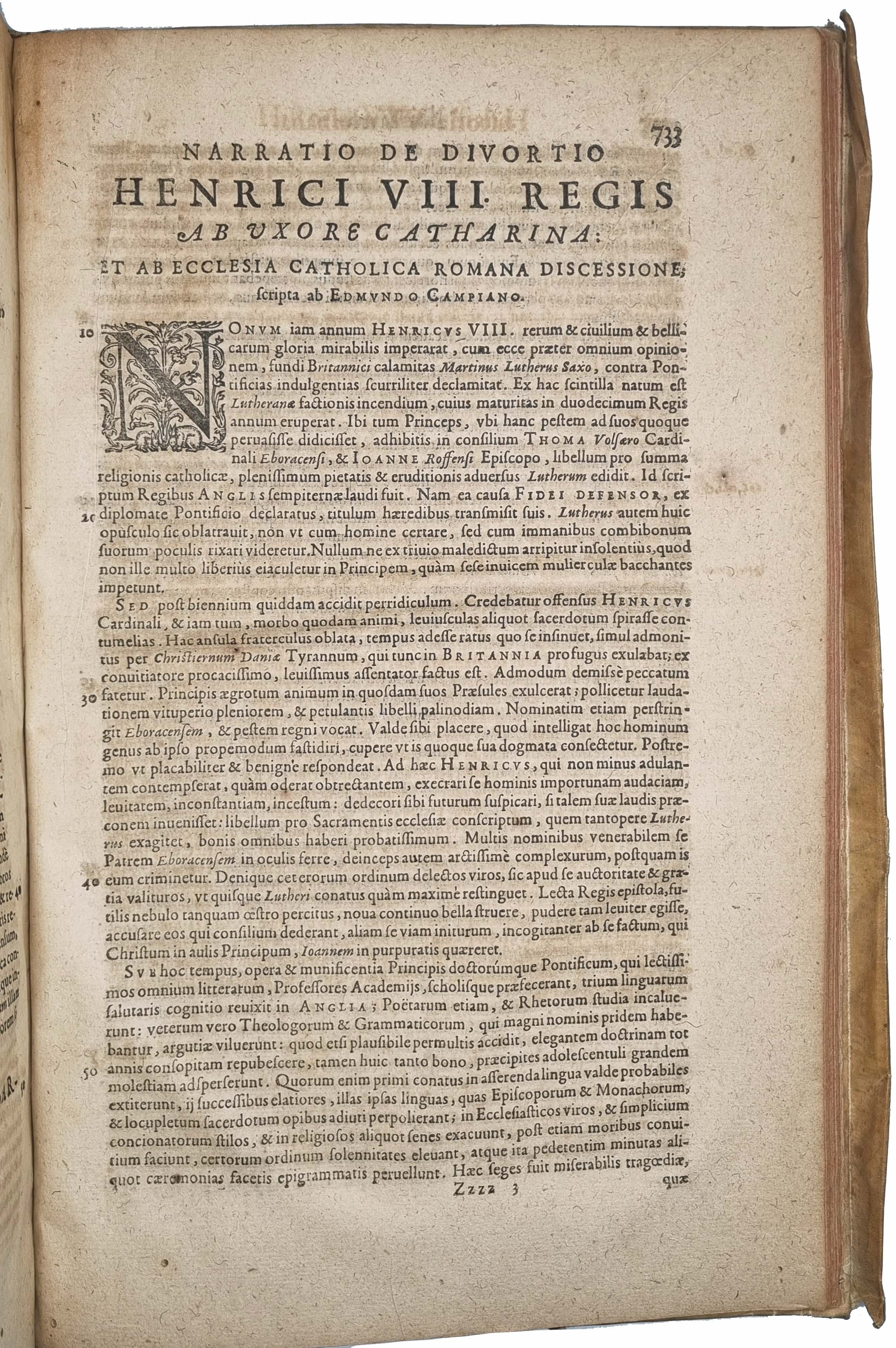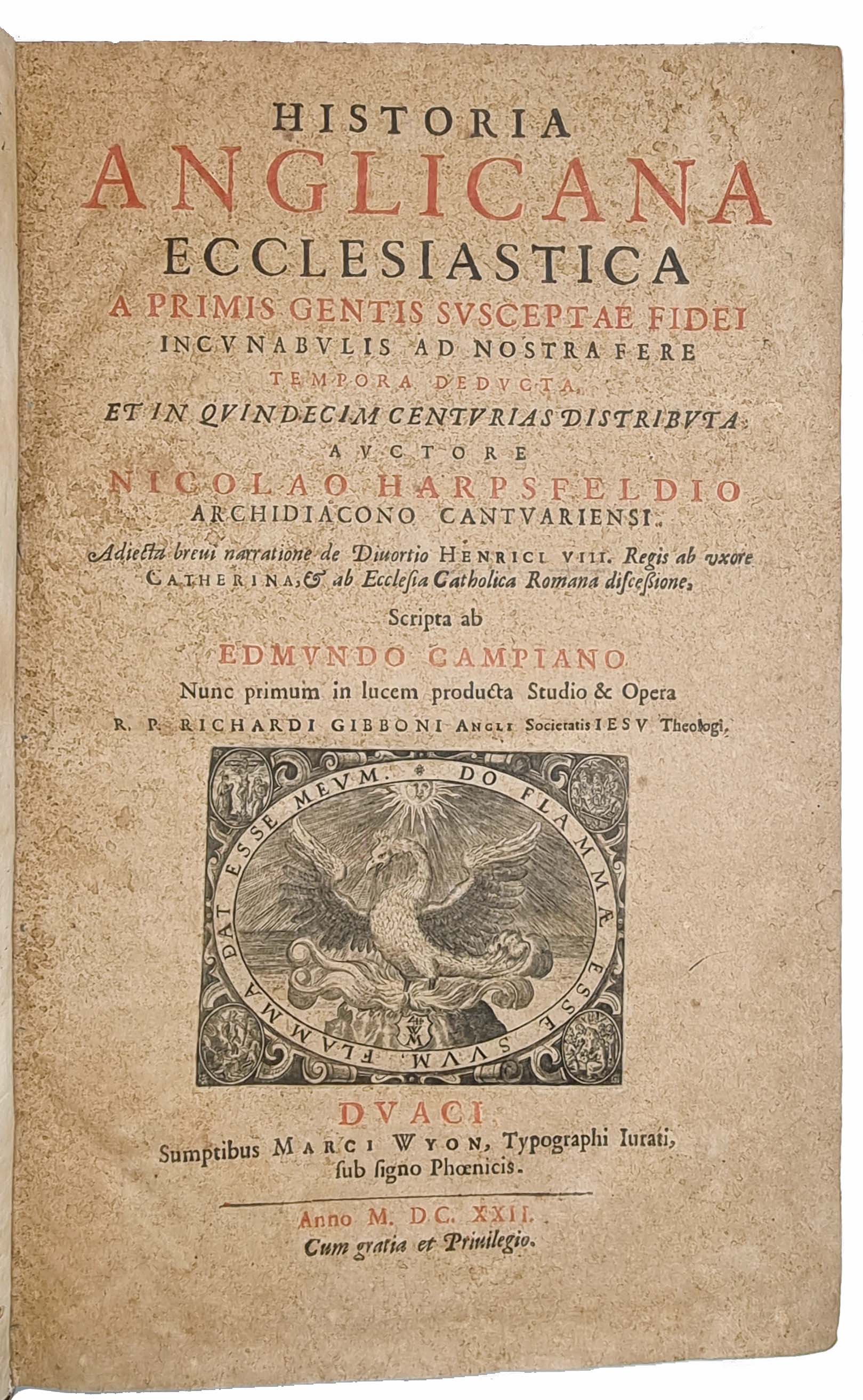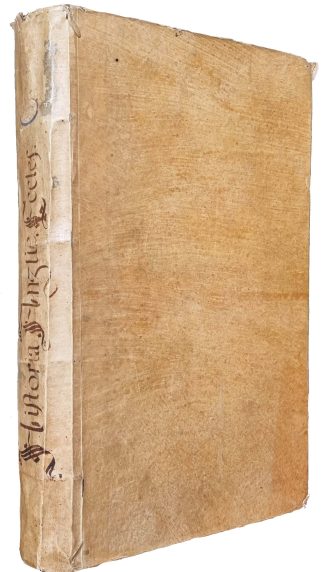HARPSFIELD, Nicholas.
FIRST PRINTED ACCOUNT OF HENRY VIII’S DIVORCE
Historia anglicana ecclesiastica
Douai, M. Wyon, 1622£1,750.00
Folio, 3 works in one, half-title to second, pp. (xxiv) 1-660, 661-740, 741-743 746-779 [i.e., 775] (i). Roman letter, little Italic, t-p in red and black. Engraved vignette to t-p, decorated initials and ornaments. Variable browning (poor quality paper), t-p spotted, lower outer blank corner of A4 repaired, very minor spotting, occasional light waterstaining to upper margins, minor worming to lower blank margin of final gatherings. A perfectly acceptable copy in contemporary vellum, yapp edges, title inked to spine, inscription c.1800 ‘questa opera è di un Cattolico Romano’ to fly.
Second edition of this major work of English Reformation history, including the first printed account of Henry VIII’s divorce. Nicholas Harpsfield (1519-75) was a Catholic priest, theologian and historian who, after reading canon law at Oxford, became friends with Thomas More and during his brief exile to escape the increasingly rigid reformism, composed the account of Thomas’s martyrdom. Upon Queen Mary’s accession, he was appointed Archdeacon of Canterbury and involved in trials of hardened Protestants, being singled out for his ruthlessness in John Foxe’s ‘Book of Martyrs’. During his later years, imprisoned in the Tower of London, he penned an attack on the validity of Henry VIII’s divorce, one against the ‘Wycliffite heresy’, and the ‘Historia anglicana ecclesiastica’, a posthumously published history of all English dioceses from the first century AD, according to the great tradition of Bede and William of Malmesbury. The editor of this edition, Richard Gibbon S.J., included an addition by the Jesuit Edmund Campion, the account of Henry VIII’s divorce and the schism—its first appearance in print. Widely circulated in ms. for half a century prior to its publication, the ‘Historia’ became a major reference point for exiled English Catholics, who saw in ecclesiastical historiography a solid battleground for debate on the schismatic church. The eminent Cardinal William Allen left a ms. copy to the English Collegium at Douai, which was taken to Rome, whilst the learned Robert Parsons S.J. ranked it as important as Bede (Kewes, ‘Uses’, 110; Birkhead, ‘Newsletters’, 233). A monument of the English Counter-Reformation.
The C18 Italian owner of this copy felt the need to clarify on the flyleaf that ‘this book was written by a Roman Catholic’.
BM STC Fr. 1601-1700, 147; Rep. Bib. XVII IV (Douai), 1132. G. Birkenhead, Newsletters from the Archpresbyterate (Cambridge, 1998); F. Heal, ‘Catholic and Protestant Polemics’, in The Uses of History in Early Modern England, ed. P. Kewes (San Marino, CA, 2006).In stock





